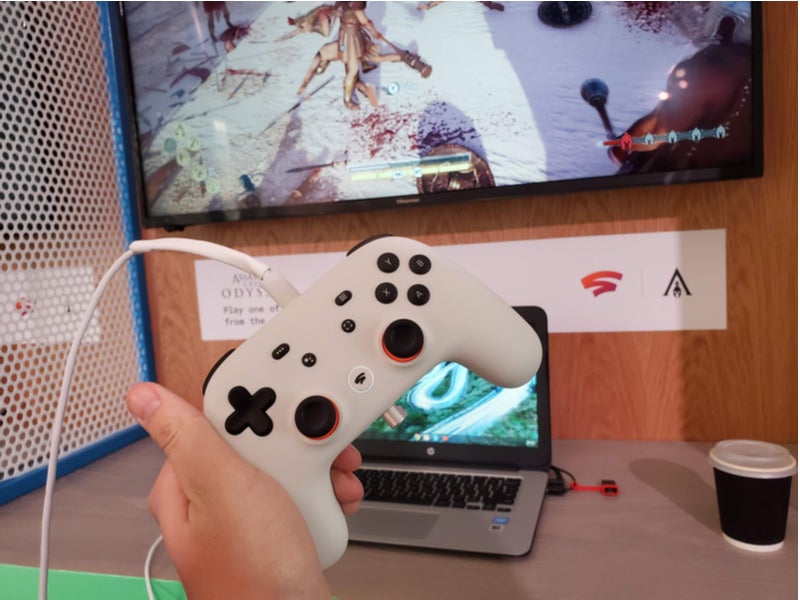
Google’s recent launch of Stadia, a much-heralded cloud gaming platform, clearly demonstrates its intentions of exploiting the upcoming holiday season, but there are good reasons to think not all will go according to plan for Alphabet.
Issues with competition and technical challenges mean Stadia will need to lift its game if it is to impress.
Competition here and now
With the Microsoft Project xCloud and NVIDIA GeForce Now still in beta stages, Google is setting out its stall with a $10 per month subscription for premium titles such as Red Dead Redemption 2, Final Fantasy XV, Mortal Combat 11, NBA 2K20, Assassin’s Creed Odyssey and Destiny 2 etc.
However, we anticipate Google will encounter a strong challenge from Sony. The Japanese video gaming giant is renowned for price-slashing during the holiday season to boost sales. In October 2019, Sony reduced the monthly subscription price of the PlayStation4 and PC-focused cloud gaming service, PlayStation Now (launched in 2014), to $9.99 from $19.99, bringing it to par with the Stadia. The PS Now also has no additional charges for its portfolio of 800 titles, while Stadia requires game purchases in addition to the monthly subscription. The positive for Stadia is that there is little overlap between its 22 games with PS Now’s.
Technical glitches
Stadia is also launching with numerous technological inhibitions. Early users have reported stuttering, frame drops, periodic gameplay disruption and poor resolution. Latency is a key concern for gamers, especially in areas with unstable internet connectivity. Stadia offers no cross-play (for games like Destiny 2 and Mortal Kombat 11) as of now, USB tethering is required to connect with PCs and smartphones (limited to Pixel phones at the time of writing); and the delivery of the Stadia controllers have been delayed due to shipping issues.
It is also unclear who Stadia is for? With a handful of titles, including only one exclusive (Gylt) on an unproven platform, it is clear Google is not targeting hardcore gamers. Conversely, casual gamers are unlikely to provide sustainable growth, because they prefer inexpensive smartphone-based games. Consumers may have expected the “Netflix of games” experience that Google promised during the platform’s initial announcement, but instead what they got were a handful of titles on a platform with poor user experience.
How well do you really know your competitors?
Access the most comprehensive Company Profiles on the market, powered by GlobalData. Save hours of research. Gain competitive edge.

Thank you!
Your download email will arrive shortly
Not ready to buy yet? Download a free sample
We are confident about the unique quality of our Company Profiles. However, we want you to make the most beneficial decision for your business, so we offer a free sample that you can download by submitting the below form
By GlobalDataCompetition around the corner
Come 2020, Stadia’s journey will become even tougher thanks to competition. EA will launch its Project Atlas, Nvidia will bring the GeForce Now to the mainstream and the Tencent Cloud Gaming Solution will expand in the West.
Microsoft and Sony’s collaborative cloud gaming service is also expected to make landfall in 2020. So it seems Google has only given itself just over a quarter to cement its position in the cloud gaming market. During this period, it must strengthen its games catalogue with both popular and exclusive titles and address all its technical glitches.
Google will also have to manage increased regulatory scrutiny of cross-border portability, gaming content, licensing, micro-transactions, cyberattacks and user privacy, especially in the US, Europe and China.
Stadia will also face competition from the Apple Arcade, for their similar subscription models. The Apple Arcade comes at a $4.99 monthly pack compared to Stadia’s $9.99, although Apple processes its games on iPhones, iPads, Macs and Apple TVs, while Google does this on the cloud. Besides, Apple Arcade subscribers are likely to get better user experience as the service is not dependent on high-speed internet connection. Meanwhile, Google Stadia users expect to save on gaming hardware expenses but will remain stalled until 5G – which promises to break latency barriers – becomes ubiquitous.
Google needs to build a strong ecosystem around Stadia and draw a continuous development roadmap to keep it afloat in the intensifying competitive scenario. Failing to do so, the platform could quickly end up alongside Nexus, Google TV, DayDream View, Google Plus and other abandoned initiatives.






Related Company Profiles
Apple Inc
Google LLC
Microsoft Corp
Alphabet Inc
Sony Group Corp